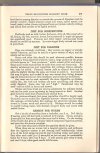Oh boy.
congrats on having done the HbA1c test. I hope you are now completely reassured?
Your nurse sounds like she is a potentially dangerous liability.
@HSSS has already given you useful links on why your nurse’s diagnostic practices/beliefs are against current NHS guidelines, so it just remains for me to give you accurate info on how Atkins died.

en.wikipedia.org
Atkins slipped on an icy pavement in New York, banged his head and died of the injury days later, in hospital.
at the time of his injury he had cardiomyopathy, caused by a virus, not his diet.
Anti-Atkinsers thought it would be a hoot to say he died from bad eating, and their comments went viral
- and now, half the world, and misinformed nurses, spout the lies as if they were gospel.
I suggest you pass the links to your nurse, and remind her that passing incorrect information, scaremongering and misleading is actually malpractice.
Also, in case you are interested, as I understand it, the GTT is the way diabetes used to be diagnosed. They were phased out several years ago when the World Health Authority decided that the HbA1c was a better (cheaper) more easily standardised test.
I have had several of these GTT tests, at 2 different surgeries, and been dismayed at the various different procedures used. Different drinks (glucose in water, lucozade, premixed sickly fruit drink. Different instructions (fasting, not fasting, forbidden to walk between tests, sent home on foot and told to come back 2hrs later). Different timings used (blood drawn at 0 and 120mins, at 0 and 135mins, and 0, 60 and 125mins).
Once, the 2hr blood draw was delayed by 15 mins, and I ‘passed’ the test by a mere 0.1 mmol/l
(and we all know how much our bg can drop in 15 mins!)
when i asked for the mistiming to be taken into account, they said the times were fine and my results were non diabetic, and ‘we’ll call you in 12 months for a retest.’
A year later, I was told ‘oh, we don’t do GTTs any more. The HbA1c is much better’.
basically, don’t let the woman bully you, and try to ensure she hasn’t marked your notes in some way that might affect any future treatment or prejudice any future healthcare worker.



